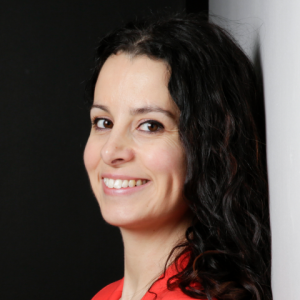Stories from the field
Social accountability can help communities to cope better in times of crisis
Long-term investments in social infrastructure, like the GPSA’s investments in collaborative social accountability, have enabled communities to better cope through the COVID-19 crisis. This can be a viable path to creating resilience for the future.
In the Democratic Republic of the Congo (DRC), GPSA grant partner Cordaid, in partnership with Health Development Committees, has been providing health kits to vulnerable populations, prioritizing, and solving medical supply shortages and bottlenecks, and engaging in community resilience activities in response to the COVID-19 pandemic.
The COVID-19 pandemic has highlighted the importance of resilience
The COVID-19 pandemic has forced us all to navigate a new reality. In so doing, our eyes have been opened to the importance of resilience, not only at a personal level but also within our communities.
This kind of resilience is linked to social infrastructure. However, unlike physical infrastructure that can be built from a blueprint from one day to the next, social infrastructure does not suddenly emerge ready to be used; it is relational and evolutionary and takes time to cultivate and nurture. Physical infrastructure can be destroyed in an instant, but social infrastructure endures and can be mobilized and repurposed to fit the challenge of the day, including dealing with the COVID-19 pandemic.
A good insurance policy for when a crisis strikes
Throughout the crisis, we have heard testimonies from communities around the world that have tapped into the treasure chest that is their social infrastructure. This is exactly what the GPSA long-term partner and grant alumni, Cordaid, did in the DRC.
Through a four-year GPSA grant (2015-2019), Cordaid had already implemented a collaborative social accountability project that focused on strengthening the health system in the regions of South Kivu and Congo Central. The project helped to boost the community-led Health Development Committees (HDCs) through citizen participation and regular monitoring of health services. Above all, it helped to strengthen health service accountability for citizens. To the community, these Committees came to be recognized for promoting local solutions and self-sufficiency and for integrating the most vulnerable segments of the population. In the words of Cordaid, ‘the Committees represent everyone.’
When COVID-19 hit, the HDCs were already there as a valuable resource. Cordaid teamed up with them to act fast and repurpose their work for the crisis. This included providing health kits and addressing medical supply shortages and bottlenecks impacting the most vulnerable populations. Through these Committees, communities had a social infrastructure to rely on at the onset of the pandemic, which created resilience and helped them to better cope.
Sustaining social accountability processes is more important than showcasing a specific tool
The GPSA model seeks to build sustainable social accountability processes. This is less about sustaining a specific activity, tool, or project and more about sustaining a way of working and approaching to challenges. For the GPSA, this approach is called collaborative social accountability and means that civil society and government jointly solve problems in a collaborative and complementary fashion. Here, paths to sustainability include integrating these approaches into governance systems and processes so they can be adopted by the government to solve governance problems.
One should never waste a crisis, the saying goes, and if there is one thing that the global pandemic has taught us it is that the investments we had previously made in social infrastructure, like the HDC in the DRC, were there to be reaped when the COVID-19 crisis hit. Likewise, any investment we do in social infrastructure today will be there to be reaped in the future whatever the next crisis may look like.
Authors
Rowlands Kaotcha
Mr. Rowlands Kaotcha is a Global Vice President and Director for Africa and Mexico, after having served as the Southern Africa Regional Director for The Hunger Project, Country Director in Malawi since 2004, and as dual Country Director of Malawi and Mozambique since October 2017. Recently, Rowlands led The Hunger Project’s expansion into Zambia and also serves as the Southern Africa coordinator for the Movement for Community-led Development.
related content
Capitalizing on the ability of civil society organizations to collect information from users of public services about the state of public service delivery, and effectively channeling this information to decision-makers in government and parliament can contribute to evidence-based policymaking, and, ultimately, to improved public services.


